Eric Garner, Trayvon Martin, & Michael Brown
A ROUND TABLE DISCUSSION ON CONTEMPORARY SOCIAL MOVEMENTS IN THE U.S.
Benjamin E. Lind, Ph.D.
Department of Sociology, Faculty of Social Sciences
Center for Advanced Studies
Applied Networks Research Laboratory
National Research University - Higher School of Economics
Warning: Armchair Theorizing Ahead
This Subject Speaks to many Areas
Each are highly relevant for both public and academic concerns
Unfortunately, we can't address them all tonight.
In particular, I won't go into much detail on the following subjects...
The Immediate Situation Preceding the Homicides of
Trayvon Martin (February 26, 2012)
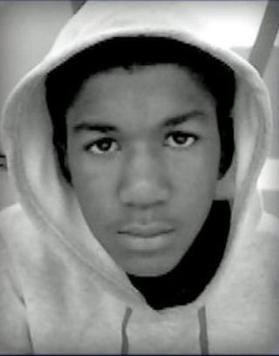
The Immediate Situation Preceding the Homicides of
Eric Garner (July 17, 2014)

The Immediate Situation Preceding the Homicides of
Michael Brown (August 9, 2014)

The Immediate Situation Preceding the Homicides of
Tamir Rice (November 22, 2014)
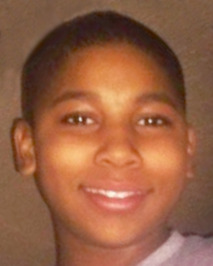
The Immediate Situation Preceding the Homicides of
Tony Robinson (March 6, 2015)

The Immediate Situation Preceding the Homicides of
Among many, many others
Racial Profiling and Differential Treatment Under Law
POLICE Militarization
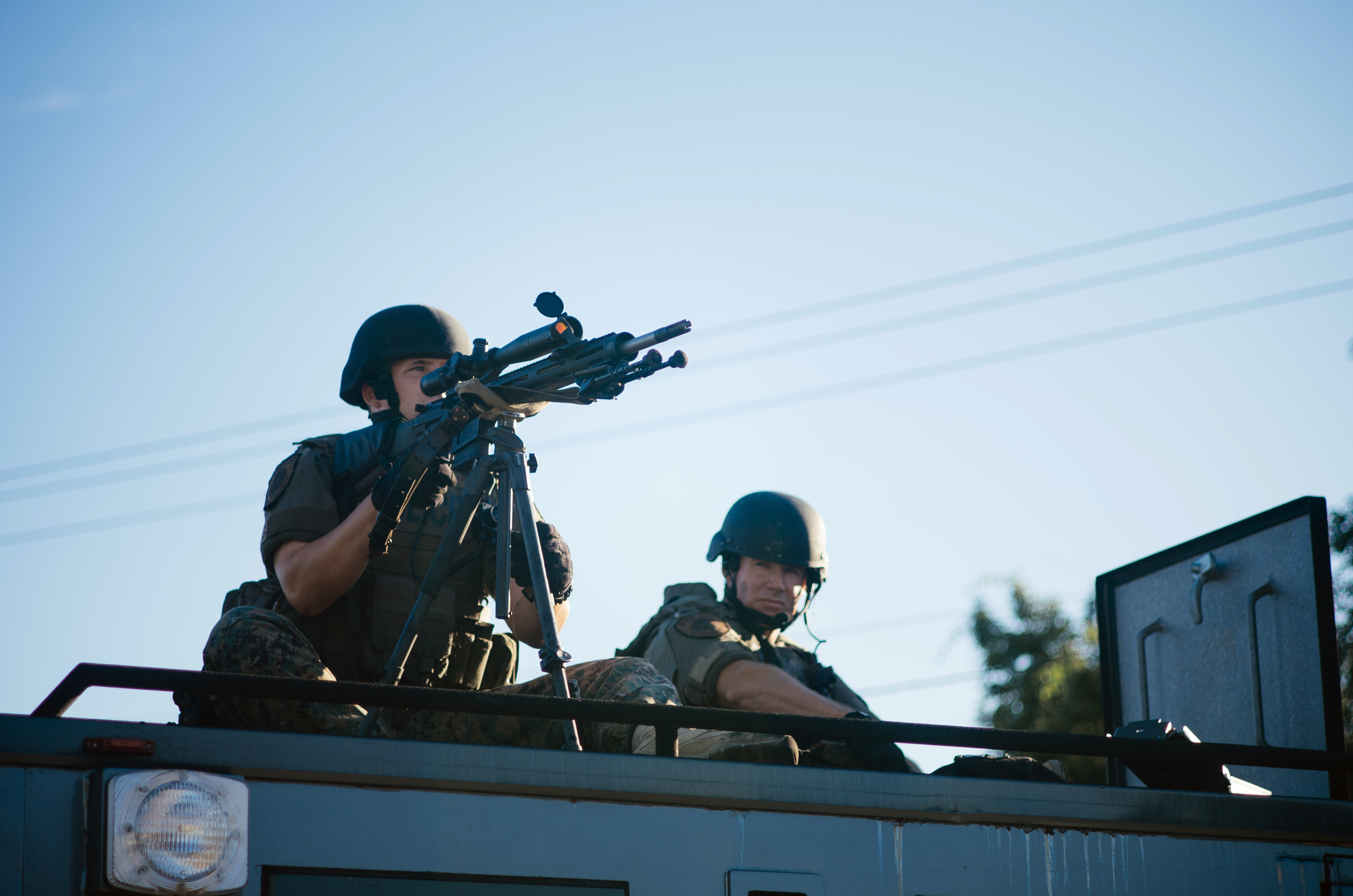
Image courtesy of Jamelle Bouie
American Gun Culture and Laws

Image courtesy of M Glasgow
or, Why Police DOn't Go to Jail for Homicide
Of 1,500 sampled police officers who killed while on-duty, only three were convicted of murder
Kobler. 1975. "Police Homicide in a Democracy," Journal of Social Issues 31:164, supra note 7
Instead, Let's Talk about the Resultant Movements
Social Movement Characteristics
Snow, Soule, and Kreisi (2004)
Collective or Joint Action
Demonstrated Publicly
Goals for Change
Typically, these goals involve claims against--or in defense of--existing authorities
Operating Outside Formal, Institutional Channels
A Degree of Organization or Basic Coordination
Temporal Continuity
Related Phenomena that Are not Movements
- Collective Behavior
- Fads
- Fashion
- Panics
- Crowds
- Interest Groups
Movements are neither psychological phenomena, nor day-to-day politics
Key Concepts
Mobilization
Resources
Politics
Discourse
What are Some Typical Questions Asked when Studying Movements?
"The Mobilization Question"
- Where does social mobilization occur?
- When does social mobilization occur?
- Who participates and who does not?
Smaller Subjects
- Tactics
- Collective identity
- Discourse usage
- Organization forms
- Policing protest
Tactics
Collective Identity

Image courtesy of The All-Nite Images
Collective Identity
Collective Identity

Discourse Usage

Image courtesy of Jamelle Bouie
Discourse Usage
Image courtesy of otto-yamamoto
Discourse Usage
Image courtesy of David Shankbone
"Million Hoodie March" (March 21, 2012)
Organizational Forms
- Black Lives Matter (founded March 2013)
- Founders
- Alicia Garza (National Domestic Workers Alliance, f. 2007)
- Patrisse Cullors (Coalition to End Sheriff Violence)
- Opal Tometi (Black Alliance for Just Immigration, f. 2006)
- 23 Chapters, 700+ protest events
- Founders
- Hands Up United (focus on transparency, digital access, f. 2014)
- Ferguson Action/Ferguson October
- Organized by Hands Up United, the Organization for Black Struggle (f. 1980), Missourians Organizing for Reform and Empowerment, and others
- Radical organizational presence at Ferguson
- New Black Panther Party
- Oath Keepers
Policing Protest
Citizen protest has now become a normal part of the political process, its messages seen as a legitimate supplement to voting, petitioning, and lobbying efforts to influence government policy and practice. At the same time, the recurring behavioral repertoires of both protesters and police, and their interactions with one another, have become institutionalized and therefore routinized, predictable, and, perhaps as a result, of diminishing impact.
Text
- McCarthy and McPhail (1998: 84), cited in Soule and Earl (2005:348)
Frequently described as "negotiated management"
Ferguson was, as we say, a "Deviant Case"
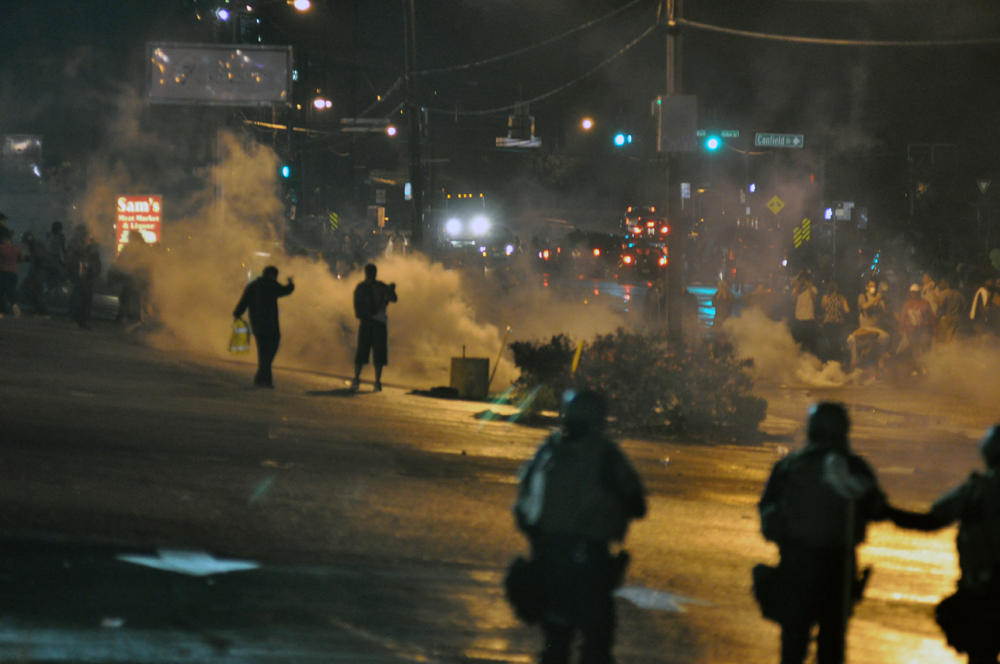
Image courtesy of Loavesofbread
Ferguson was, as we say, a "Deviant Case"

Movement Outcomes
What actually happens as a result of social mobilization?
This is the subject that I want to talk about the most.
Common Myths about Social Movement Outcomes in the U.S.
- "Movements can fully succeed."
- Only if their goals are very limited.
- If so, the movement disbands.
- "Outcomes" vs. "success"
- "If a movement does X, Y, and Z, they will achieve their goals."
- It's not like ordering a pizza. There's a political process.
- If an optimal recipe existed, everyone would use it, weakening its impact.
- Occupy Wall Street used one, resulting in questionable gains.
- "Social change sometimes occurs rapidly."
- The founders of the U.S. designed a slow and stable government.
- "Sympathetic political campaigners will deliver on movement promises."
Generally, I am quite happy that these are myths.
Types of Outcomes
- Political
- Politicians engaging with the movement
- Legislation
- Hearings
- Voting and passage
- Cultural
- Media coverage
- Casual conversations
- Attitudes and values
- Organizational
- Effects on businesses
- Higher education and public sector
- Within the Movement
- Activist experience and skills
- Abeyance
- Tie formation and bridging
How are Positive Outcomes Usually Explained?
- Within the Movement
- Number of protests, their size
- Disruption and violence
- Professional organizations
- Diversity, varied tactics (insider and outsider)
- Within Politics
- Political allies, sympathetic party as a supermajority
- Divided elites, particularly during an election year
- Within the Organizational Milieu
- Competition within the media
- Connections movement organizations make with established organizations
How are Positive Outcomes Usually Explained?
Movements that advocate displacement will fail.
Have the Movements on Behalf of the Victims of Police Violence Obtained DESIRABLE Outcomes?
Yes, Absolutely.
But So Much Hasn't Changed!
- No federal legislation passed!
- The police haven't faced adequate punishment!
- Many people, still defend the police responsible, even giving them millions of dollars!
- Racial profiling by the police will continue and black incarceration rates will likely remain high!
Some Perspective
Most Movements Pass without Anyone Noticing
Some Perspective
Most Movements Pass without Anyone Noticing
We usually base our expectations of movements relative to the ones we read about in the news or in history books.
Typically, those are the most successful and talented.
Some Perspective
Most Movements Pass without Anyone Noticing
Movement organizations work very hard to get media attention. Most movement organizations don't receive any coverage.
Most organizations are very, very small. Organizations consisting of just one person are typical. Movement organizations are likewise small.
Some Very Real Results
People Are Talking about The Issue, in a Big, Big Way
Sure, Sometimes It's Superficial
Sometimes It's Ill-Advised
But Some of these Voices Carry Significant Weight
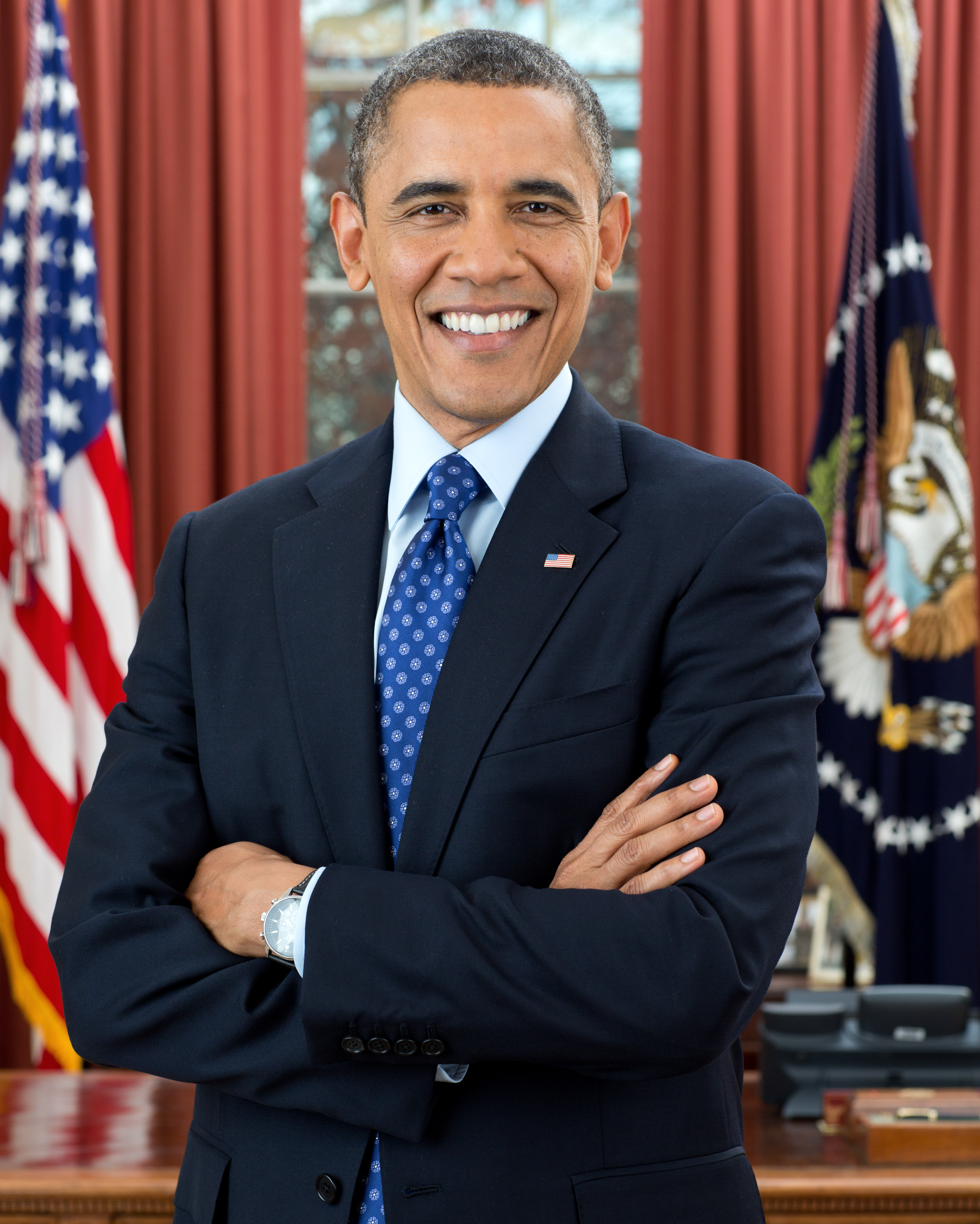
But Some of these Voices Carry Significant Weight
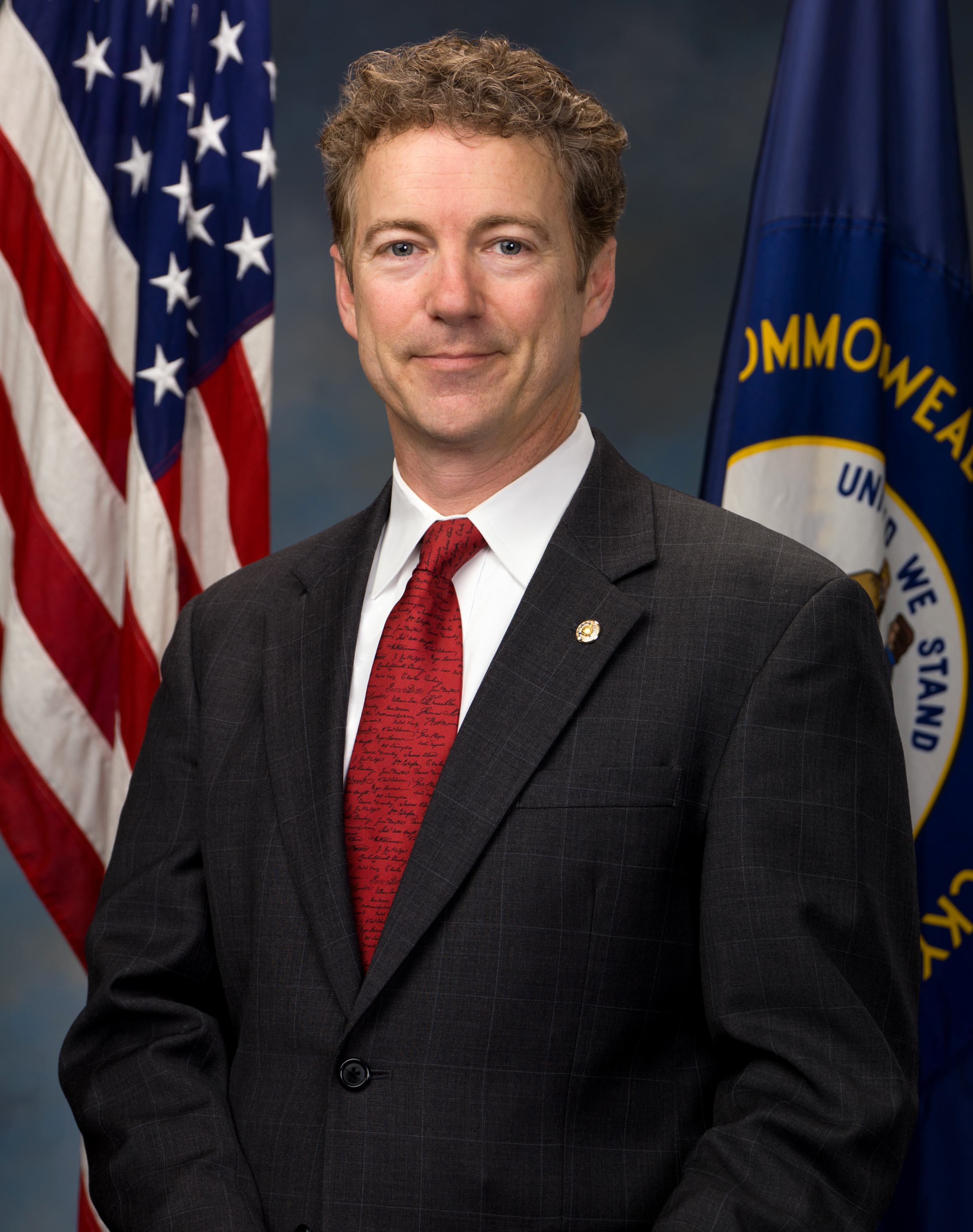
"Anyone who thinks race does not skew the application of criminal justice in this country is just not paying close enough attention."
And It's Moved Beyond the U.S.




Okay, Talk is Cheap, What Else?
ALEC Backs Down
See PoliticsOutdoors
works to advance the fundamental principles of free-market enterprise, limited government, and federalism at the state level through a nonpartisan public-private partnership of America's state legislators, members of the private sector and the general public
The American Legislative Exchange Council (ALEC)
State-Level Policies
- Animal and Ecological Terrorism Act
- Voter identification
- 'Stand Your Ground' laws
Many corporate sponsors dropped off, following pressure from NAACP and Color of Change
Attorney General Holder's investigation on Ferguson PD
- No federal civil rights charges against Officer Darren Wilson, but...
- On police practices
- An "implicit and explicit racial bias" in policing
- Police violated Fourth Amendment rights of citizens
- Critical of revenue generating policing model
- In the process of negotiating a settlement to change practices, potential lawsuit otherwise
- Would this report develop under different administrations?
In the past five years, the Justice Department’s civil rights division has opened more than 20 investigations of police departments, more than twice as many as were opened in the previous five.
See Washington Post summary.
Aftermath of Investigation
- Explicit
- Police chief Thomas Jackson resigns
- Sergeant William Mudd resigns
- Captain Rick Henke resigns
- City Court Clerk , Mary Ann Twitty, fired
- Implicit
- Mayors and police chiefs know the report
- Their practices may change in light of it
But what about Laws?
Potential Limitations on 1033 program Military Transfers to Local Police
Along with Developing Activists, The Campaigns have also Created a Rich Organizational Networks and that can be Deployed again in the Future
These Campaigns did not get Everything they wanted, or Deserved, but It would be Difficult to Attribute these changes to Anything other than Social Mobilization
Discussion
DemAbroad20150319
By Benjamin Lind
DemAbroad20150319
- 2,514



